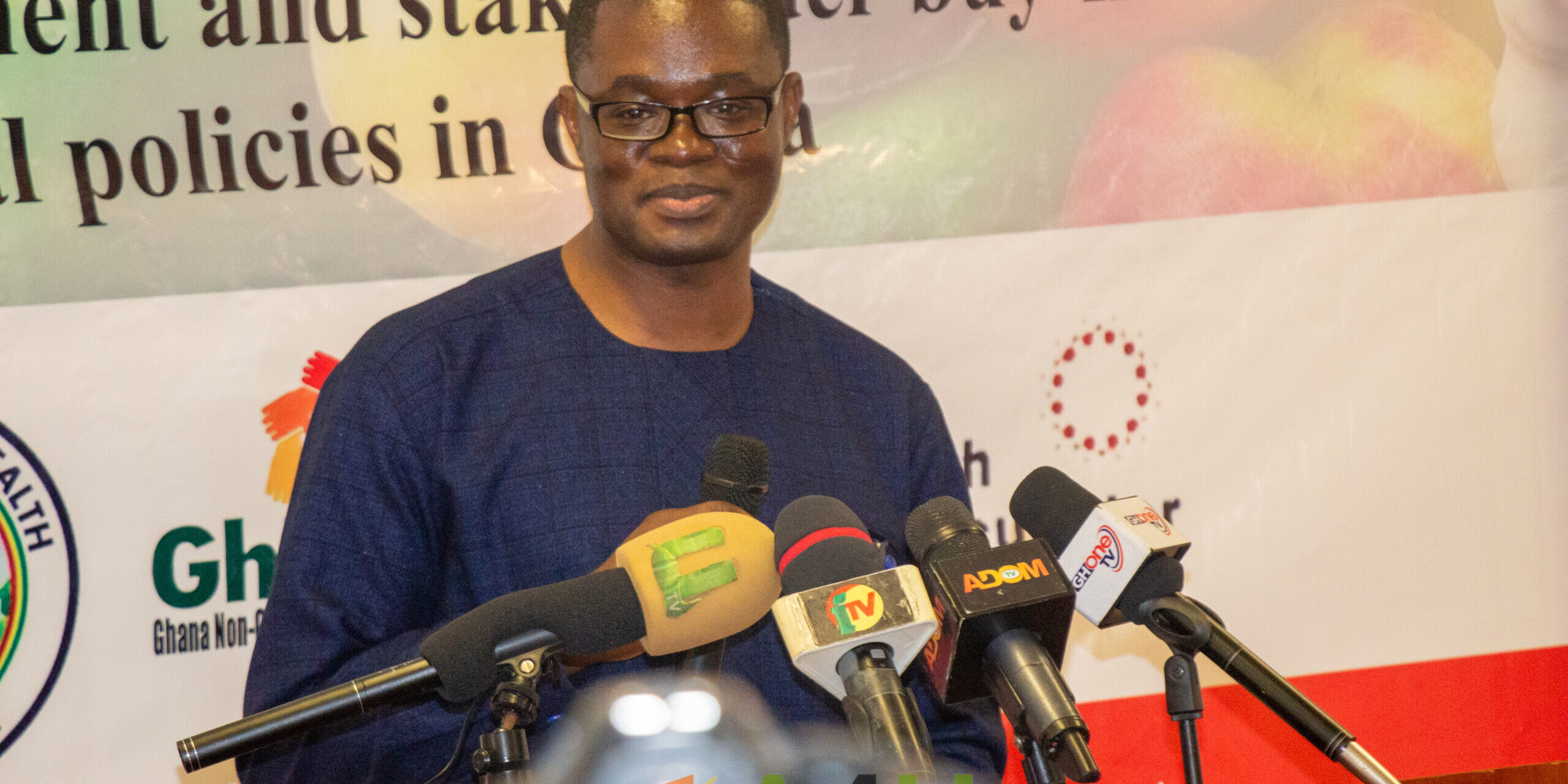Project Name: Advocating for Health (A4H)
Principal Investigator: Prof. Amos Laar, University of Ghana School of Public Health
Project Duration: 24 months (Starting April 2023)
Funding: £249,923
Partners: University of Ghana, Ghana NCD Alliance (GhNCDA), Ghana Public Health Association (GPHA), Ghana Academy of Nutrition and Dietetics (GAND)
Project Overview
The project “A4H – Advocating for Health” focuses on advocating for fiscal policies that promote public health, particularly in the area of nutrition and non-communicable diseases (NCDs) in Ghana. As Ghana’s urban food environments rapidly evolve, the country is facing an increase in NCDs such as obesity, high blood pressure, diabetes, and cardiovascular diseases, while still battling food insecurity, micronutrient deficiencies, and infectious diseases.
Key statistics show a rise in obesity among the adult female population—from 10% in 1993 to 40% in 2015. With more than one-third of adult deaths attributed to NCDs, Ghana urgently needs to address these health issues. However, while interventions such as WHO’s ‘Best Buys’ (e.g., taxes on alcohol and tobacco) are already in place, the taxation of sugar-sweetened beverages (SSBs)—a major contributor to NCDs—is absent in the country. This project aims to advocate for and build support around fiscal policies, particularly SSB taxes, as an effective strategy for reducing sugar consumption and preventing NCDs.
Objectives
- Identify a Legal Pathway for SSB Tax: The project will assess and determine a realistic legal pathway to implement the sugar-sweetened beverages (SSB) tax in Ghana.
- Generate Evidence for Advocacy: The project will gather, curate, and make available robust evidence to support advocacy efforts for the SSB tax and counteract opposition from the food and beverage industry.
- Strengthen Coalition-Building Efforts: The project will work on strengthening coalition-building among stakeholders, fostering sensitization, and improving media and policy advocacy efforts related to SSB taxation.
- Communication and Media Advocacy: Implement media campaigns to raise awareness and garner support for the SSB tax, ensuring that the most appropriate and feasible pathway for its enactment is widely known.
Key Relevance to Nutrition and Public Health
The A4H project has significant relevance for nutrition security and public health in Ghana. By advocating for policies that target the consumption of sugary products, the project seeks to:
- Reduce the consumption of harmful foods: Evidence suggests that the consumption of sugar-sweetened beverages is a major dietary risk factor for NCDs.
- Improve public health outcomes: Taxing sugary drinks is a proven strategy in other countries to reduce sugar intake and prevent related diseases such as obesity and diabetes.
- Address the double burden of malnutrition: While tackling NCDs, the project also focuses on addressing food insecurity and micronutrient malnutrition prevalent in Ghana.
- Policy innovation for sustainable solutions: This approach will complement Ghana’s efforts to build a more resilient food system, with a focus on policies that not only address food security but also promote nutrition security.
Project Partners
This advocacy project is a collaboration between several institutions that combine expertise in public health, nutrition, and policy development:
- University of Ghana (School of Public Health): Leading the academic and research efforts.
- Ghana NCD Alliance (GhNCDA): Working as a civil society partner focusing on health advocacy.
- Ghana Public Health Association (GPHA): Contributing expertise in public health to support the project’s objectives.
- Ghana Academy of Nutrition and Dietetics (GAND): Providing support in nutrition-related advocacy and policy development.
Context and Urgency
Ghana is at a critical juncture, with food-related diseases and malnutrition becoming more prevalent, despite a growing understanding of their impact on health. The time is ripe for evidence-based advocacy for policy changes that will not only curb unhealthy food consumption but also promote healthier diets and long-term improvements in public health.
Potential Impact
- Improved public health: By reducing sugar consumption through fiscal policies, the project aims to reduce the incidence of NCDs, enhancing overall health outcomes in the country.
- Policy precedent for other countries: Ghana’s approach to implementing SSB taxation could serve as a model for other low- and middle-income countries grappling with similar health challenges.
- Widespread awareness: Through advocacy and media engagement, the project will educate the public about the risks of excessive sugar consumption and encourage healthier food choices.




